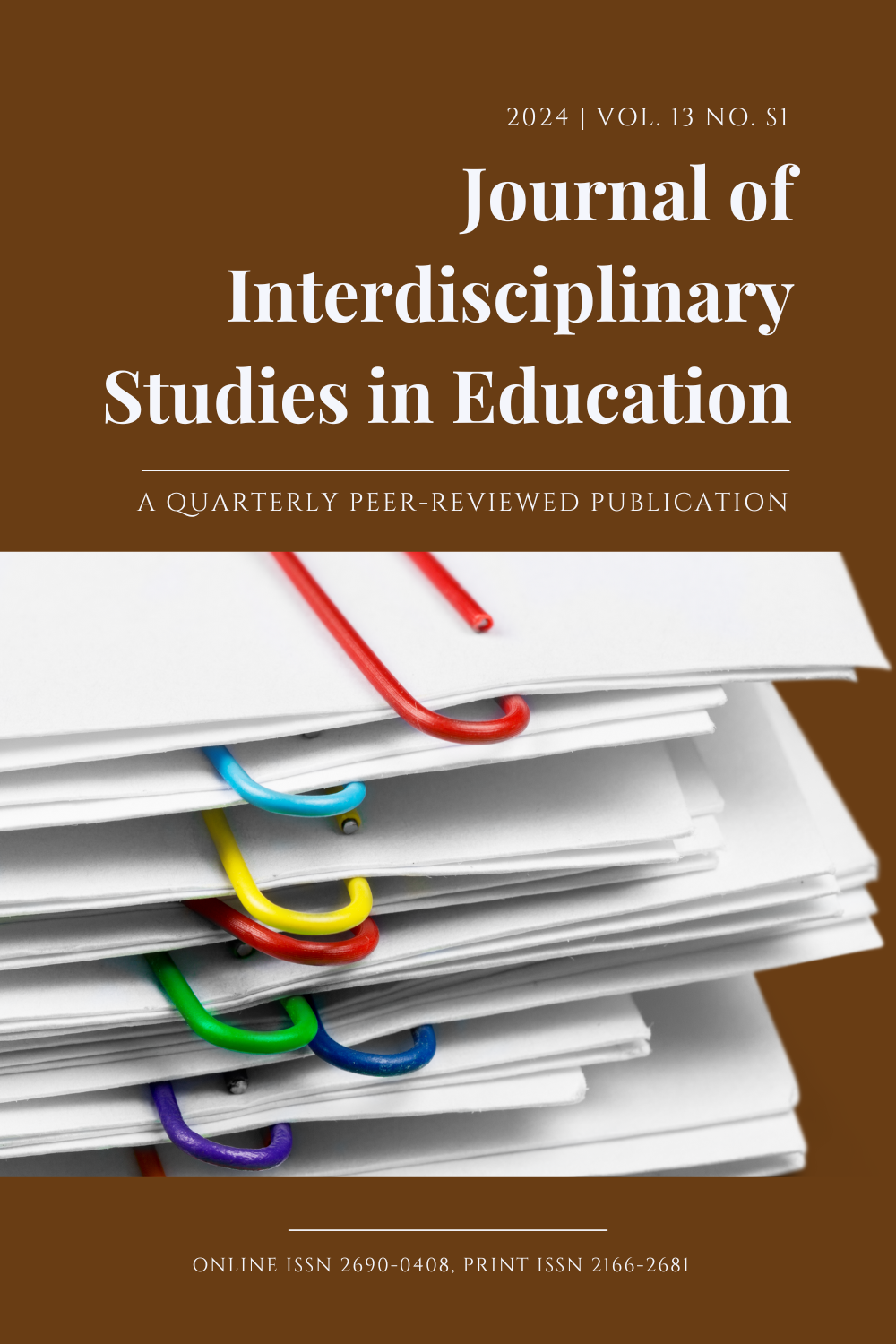Protest and pedagogy
The influence of civil unrest on teacher development and educational reforms in South Asia
DOI:
https://doi.org/10.32674/eff41a45Keywords:
Pedagogical evolution, Professional development, reform, socio-political dynamics, teacher identityAbstract
Drawing from the rich cultural heritage and diverse historical contexts of Nepal, India, Sri Lanka, and Myanmar, we examine how teachers adapt traditional and modern pedagogical methods in response to linguistic and cultural diversity. Colonial legacies in Sri Lanka and Myanmar, along with Nepal’s shifting sociopolitical climate, offer insights into the evolving identities of educators amidst systemic educational changes. The role of civil protests is analyzed as a catalyst for educational transformation, with particular emphasis on recent teacher demonstrations in Sri Lanka, underscoring the potential of disruptive movements to spur positive change. This analysis aligns Fullan’s principles with South Asia's ongoing educational reforms, highlighting the resilience and adaptability of teachers in navigating cultural, historical, and political intersections.
Downloads
References
Ampadu, E., Butakor, P. K., Amponsah, S., & Yeboah, R. (2021). Exploring the professional identities of pre-service teachers' studying at the University of Ghana. International Journal of Education Economics and Development, 12(1), 27-44. https://doi.org/10.1504/IJEED.2021.111655
Badersten, A., Nilveus, R., & Egelberg, J. (1984). Effect of nonsurgical periodontal therapy. II. Severely advanced periodontitis. Journal of Clinical Periodontology.
Badersten, A., Nilvéus, R., & Egelberg, J. (1981). Effect of nonsurgical periodontal therapy. I. Moderately advanced periodontitis. Journal of Clinical Periodontology.
Bowles, S., & Gintis, H. (1977). Schooling in capitalist America: Educational reform and the contradictions of economic life. Journal of Human Resources.
Carnoy, M., & Rhoten, D. (2002). What does globalization mean for educational change? A comparative approach. Comparative Education Review.
Cochran-Smith, M. (2001). Higher standards for prospective teachers. Journal of Teacher Education. https://doi.org/10.1177/0022487101052003001
Dahlstrom, L. (1995). Teacher education for independent Namibia: From the liberation struggle to a national agenda. Journal of Education for Teaching.
Das, S. (2017). Teacher training in South Asia: Bridging tradition and modernity. Asian Journal of Education, 5(2), 30-44.
Doherty, R., & McMahon, M. (2007). Politics, change and compromise: Restructuring the work of the Scottish teacher. Educational Review.
Donaldson, G. (2014). Teacher education and curriculum change in Scotland. European Journal of Education.
Erikson, R., & Jonsson, J. O. (1998). Can education be equalized? The Swedish case in comparative perspective. Contemporary Sociology.
Ferone, G., & Crinon, J. (2021). Se former à distance de manière collaborative: Le cas du réseau Twictée.
Fitriansyah, R., Fatinah, L., & Syahril, M. (2020). Critical review: Professional development programs to face open educational resources in Indonesia.
Frost, D. (2012). From professional development to system change: Teacher leadership and innovation. Professional Development in Education.
Fullan, M. (2003). Change forces with a vengeance.
Fullan, M. (1993). Change forces: Probing the depths of educational reform. School development and the management of change series: 10.
Fullan, M. (1993). Change forces: Probing the depths of educational reform. Taylor & Francis.
Gess-Newsome, J., et al. (2003). Educational reform, personal practical theories, and dissatisfaction: The anatomy of change in college science teaching. American Educational Research Journal. https://doi.org/10.3102/00028312040003731
Hargreaves, A., & Goodson, I. (2006). Educational change over time? The sustainability and nonsustainability of three decades of secondary school change and continuity. Educational Administration Quarterly. https://doi.org/10.1177/0013161X05277975
Hargreaves, A., et al. (2007). International handbook of educational change.
Härkki, T., et al. (2021). Co-teaching in non-linear projects: A contextualised model of co-teaching to support educational change. Teaching and Teacher Education. https://doi.org/10.1016/j.tate.2020.103188
Huang, J., Wang, Y., & Teng, F. (2019). Understanding changes in teacher beliefs and identity formation: A case study of three novice teachers in Hong Kong. Teaching Education. https://doi.org/10.1080/10476210.2019.1693535
Khan, H. (2018). Pedagogical trends in Pakistani classrooms: A call for change. Education in Asia, 23(4), 440-455.
Kijkuakul, S. (2019). Professional changes of primary science teachers: experience on collaborative action research in Thailand. Asia-Pacific Science Education, 5(1), 1. https://doi.org/10.1186/s41029-019-0030-2
Kumar, K. (2015). Education, conflict and peace. Economic & Political Weekly, 50(38), 12-15.
Memon, R. A., & Badger, R. (2007). Purposeful change? Changing the teaching of reading in a regional university in Pakistan. System.
Nathan, M. J., & Knuth, E. J. (2003). A study of whole classroom mathematical discourse and teacher change. Cognition and Instruction.
Park, J. J., & Schallert, D. L. (2019). Talking, reading, and writing like an educational psychologist: The role of discourse practices in graduate students' professional identity development. Learning, Culture and Social Interaction.
Perera, L. (2008). Educational reforms and challenges in Sri Lanka. Asian Studies Review, 32(3), 323-339.
Riahipour, P., Tavakoli, M., & Eslami Rasekh, A. (2020). Curriculum reform and Iranian EFL teachers' professional identity: A marathon of change! Journal of English Language Teaching and Learning.
Robinson-Zañartu, C. (1996). Book review: Change forces: Probing the depths of educational reform. International Journal of Educational Reform.
Saunders, R. (2013). The role of teacher emotions in change: Experiences, patterns and implications for professional development. Journal of Educational Change. https://doi.org/10.1007/s10833-012-9195-0
Schuller, A., & Bergami, R. (2008). A teacher's voice on workplace change and curriculum influence through industry placement. The International Journal of Knowledge, Culture, and Change....
Sharma, S. (2012). Education in transition: The challenges of reform in Nepal. Himalayan Journal of Sociology & Anthropology, 5, 111-132.
Skinner, B., Leavey, G., & Rothi, D. (2019). Managerialism and teacher professional identity: Impact on well-being among teachers in the UK. Educational Review.
Snyder, J. (1994). Change forces: Probing the depths of educational reform. Michael Fullan The case for change: Rethinking the preparation of educators. Seymour B. Sarason. American Journal of Education.
Srivastava, P. (2015). Teaching traditions in South Asia: A historical analysis. Oxford University Press.
Walters, W., Robinson, D. B., & Walters, J. (2020). Mentoring as meaningful professional development: The influence of mentoring on in-service teachers' identity and practice. International Journal of Mentoring and Coaching in Education, 9(1), 21-36. https://doi.org/10.1108/IJMCE-01-2019-0005
Additional Files
Published
Issue
Section
License
Copyright (c) 2024 Yadu Prasad Gyawali, Meghna Mehndroo

This work is licensed under a Creative Commons Attribution-NonCommercial-NoDerivatives 4.0 International License.







